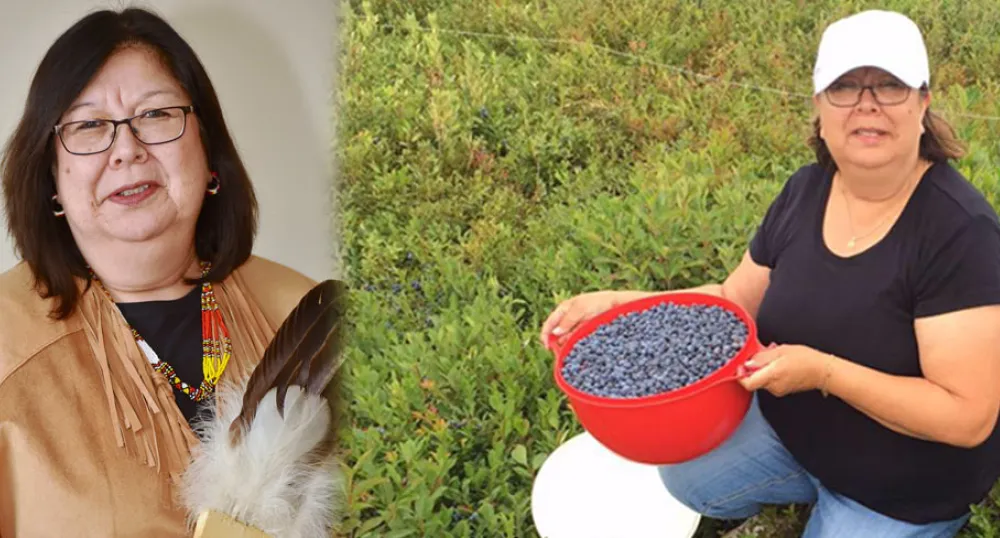Mi'kmaq Elder receives honourary award

This Mothers Day will be an unforgettable one for Mi’Kmaq Elder Judy Clark as she receives an honorary degree from the University of Prince Edward Island.
Clark – who is from Epekwitk and a member of Abegweit First Nation –was travelling with her husband when she received the phone call telling her she had been chosen for the honor.
“I kept saying ‘oh my gosh, oh my gosh, oh my gosh’ she said, “and then I thought ‘Judy you’re going to have to say something more than that when people ask you'. It was a total surprise and an honor -- I am overwhelmed and amazed.”
Clark has long been a voice for aboriginal women in Prince Edward Island. Volunteering as president of the Aboriginal Women’s Association of PEI since 2008, she has raised the profile of the organization and served as a strong advocate for Aboriginal families -- particularly in reducing violence against Aboriginal women and girls.
Clark is one four people recognized as leaders in their respective fields who will be awarded an honorary Doctor of Laws degree at UPEI today (May 13). UPEI honorary degrees recognize individuals for outstanding provincial, national, and international contributions in one or more fields of endeavour.
Clark holds a Certificate in Conflict Resolution Studies from UPEI and serves as a Circle Keeper with the Mi’kmaq Confederacy of PEI Justice Program. She is on the RCMP Commissioner’s National Aboriginal Advisory Committee, and the RCMP PEI Commanding Officer’s Aboriginal Advisory Committee.
This past summer, Clark facilitated eight study sessions at the Confederation Centre Library to help the public read and understand the summary of the final report of the Truth and Reconciliation Commission of Canada.
She likes to compare her own mother’s life experience to that of her two daughters to see how far indigenous women have come in just two generations.
“My mother always said,
‘know where you come from, know where you are, and know where you are heading’.
“As an indigenous person, I am honoured by my elders to be the knowledge keeper, to remember who we are, and to help educate people about who we are as an indigenous people.”
Judy's mother, Mary Jane Jadis was born in January 26, 1921 on a campsite in Tyne Valley. Her mother had died in childbirth when Mary Jane was only five years old, leaving Mary Jane and her siblings to move from home to home with relatives. She left school in grade two, after learning only to write her name and recite her prayers.
Judy's own life hasn’t been without adversity. She was stripped of her Indian status when she married a non-aboriginal man in 1975.
“I married the man I love and I’m no longer indigenous?” she recalls asking.
In 1985 she re-registered for her Indian status, and in 1986 it was reinstated under the Indian Act, section 6.1. Clark has spent her life trying to dismantle barriers, such as this, faced by indigenous women.
“A lot of women didn’t have a voice. I work to educate women to know that they have rights,” she said. “It gives me satisfaction that a voice for indigenous women comes from the wisdom not found in a textbook but in the stories of our people.”
Clark knows her gift is to share her knowledge of the Island’s indigenous people. When she was asked to write an article about her own experience with the Indian Act for a University of New Brunswick law journal, she turned to one of her two daughters, lawyer Cheryl Simon.
“She said ‘mom we will do it together -- your history is my history.’”
